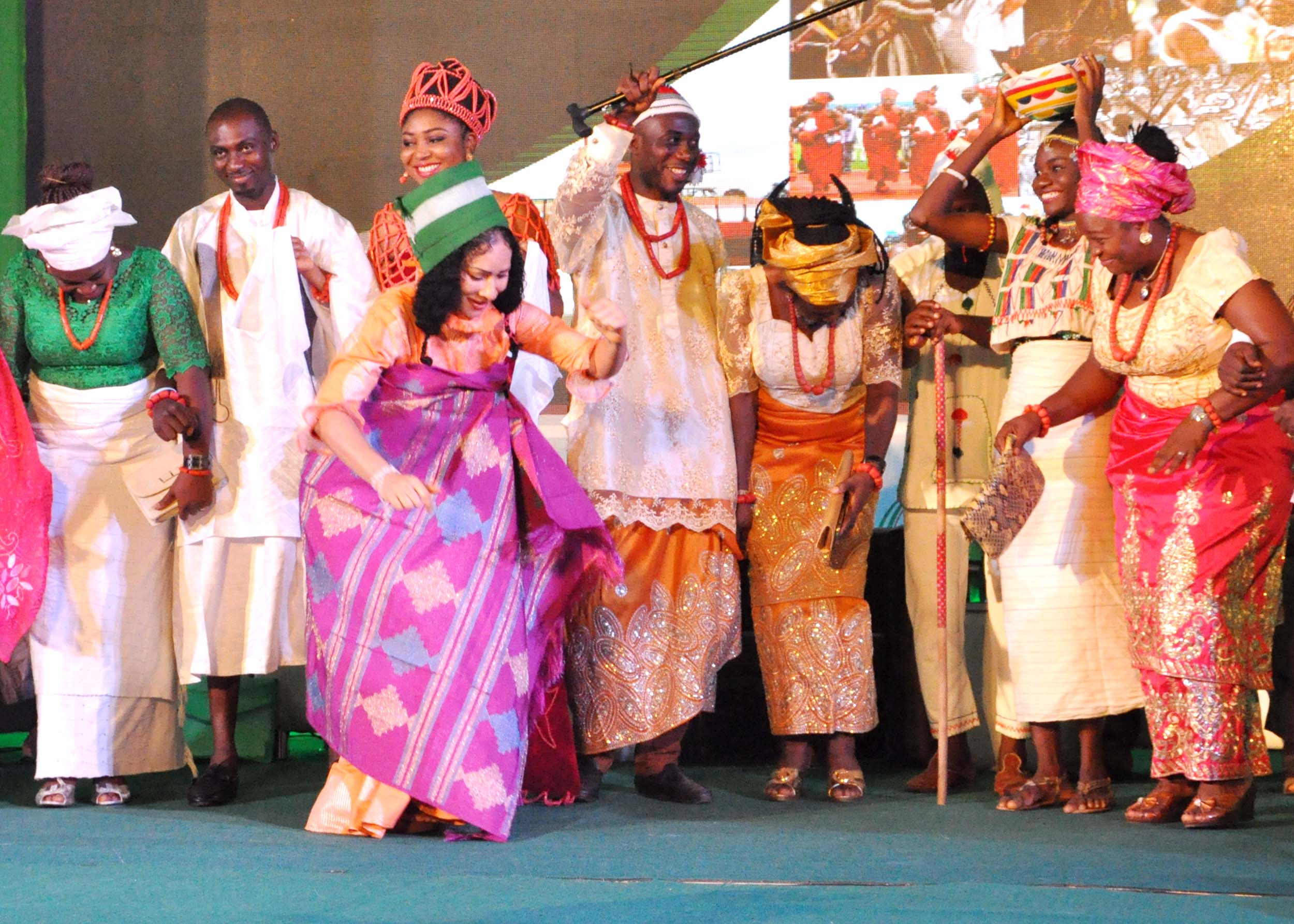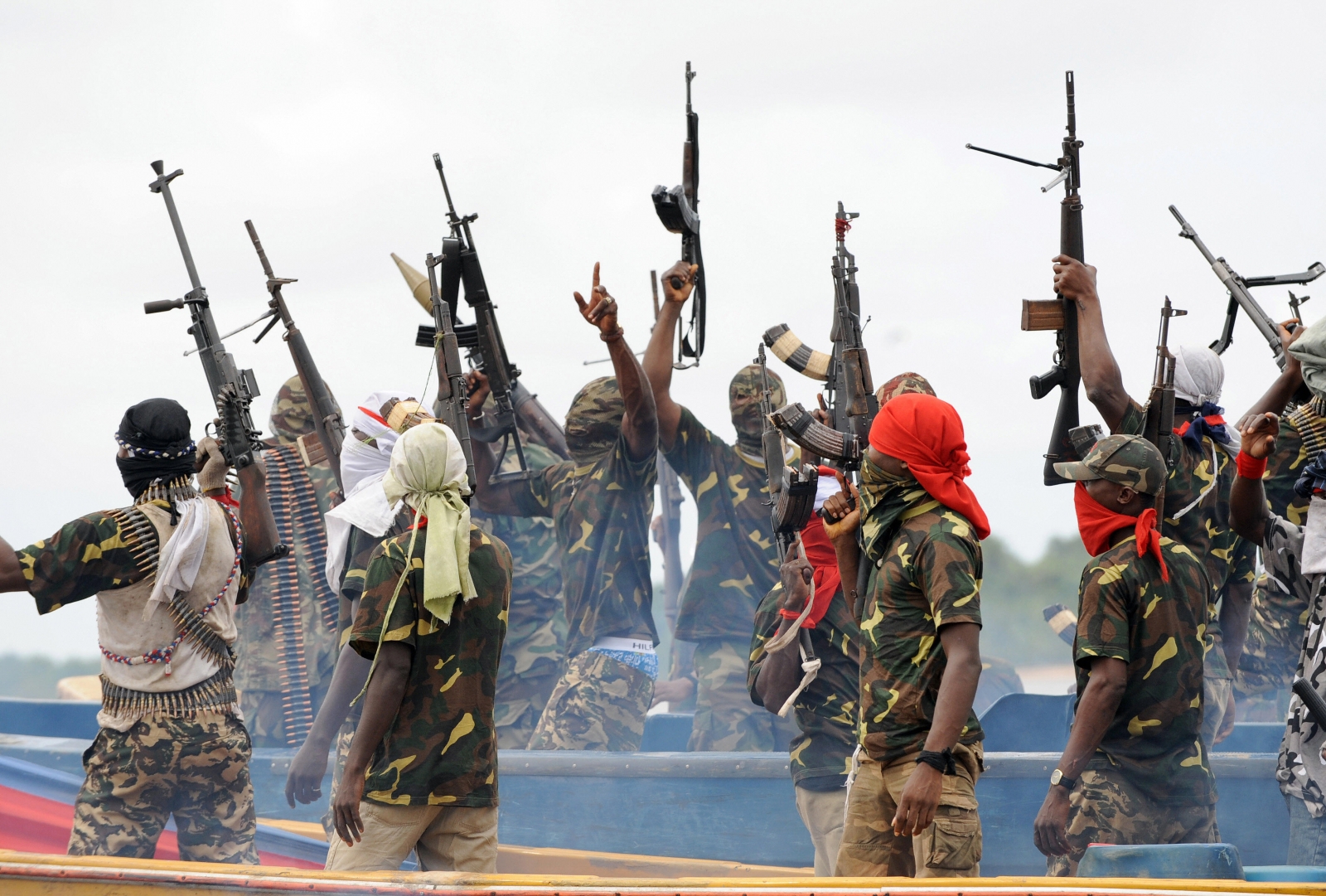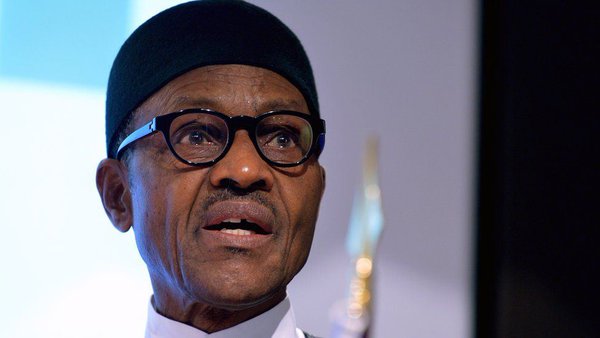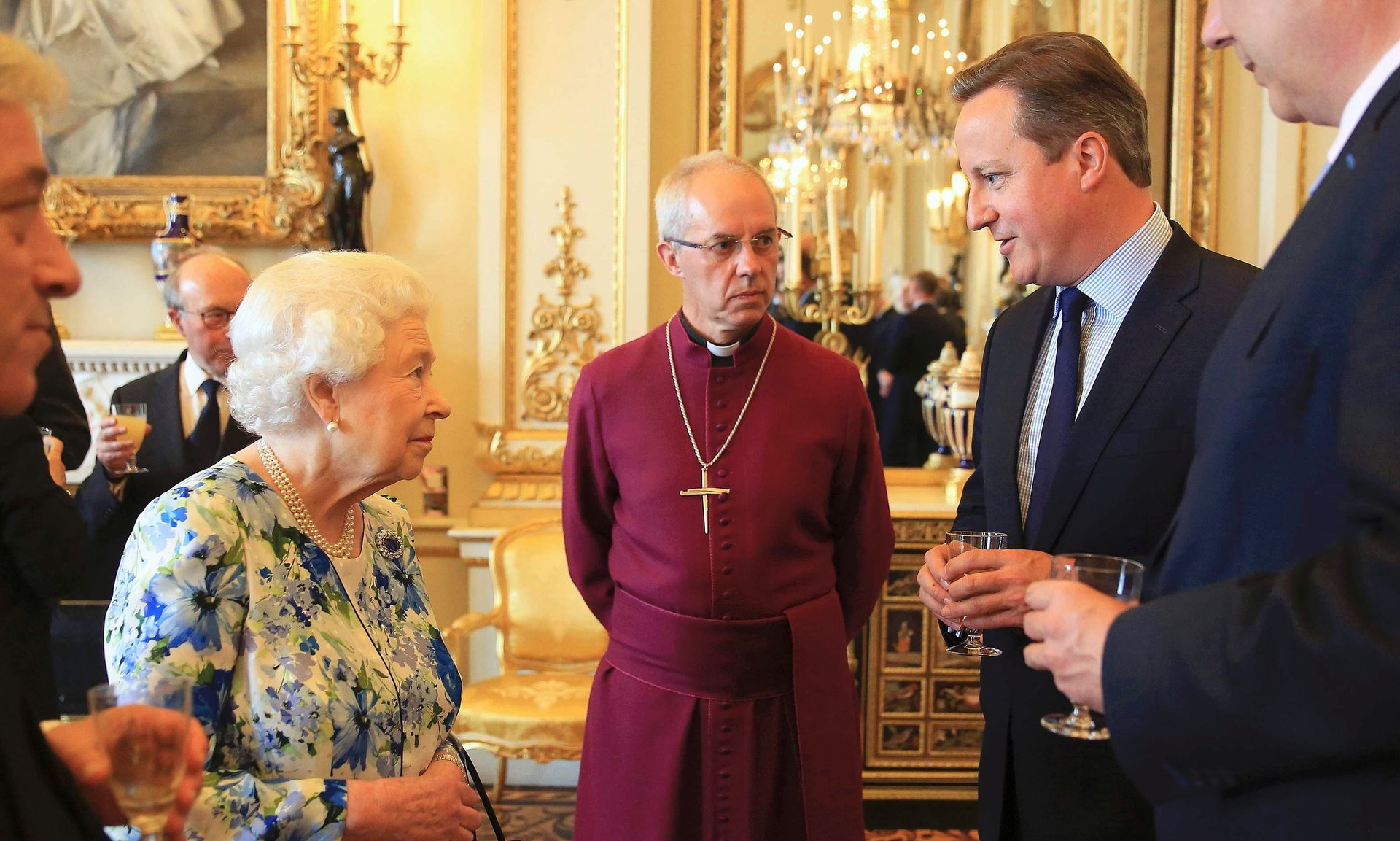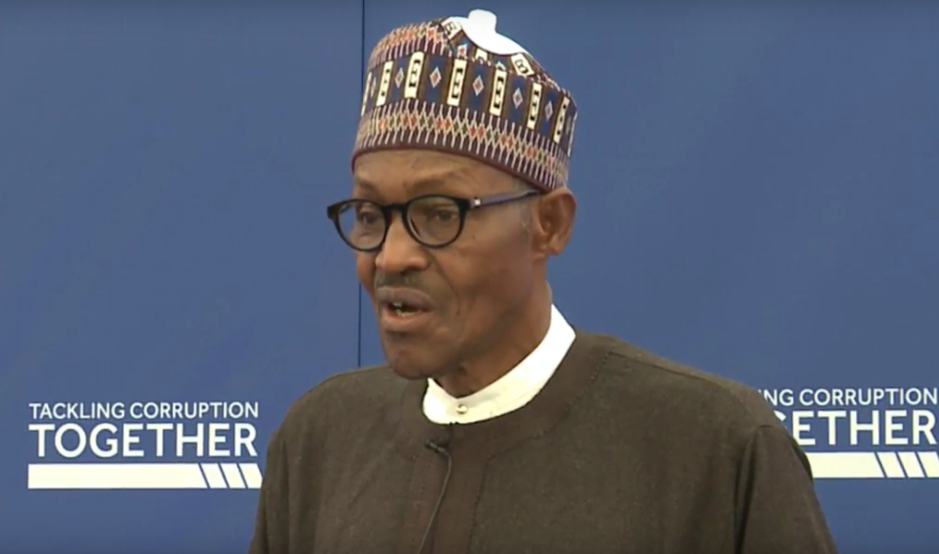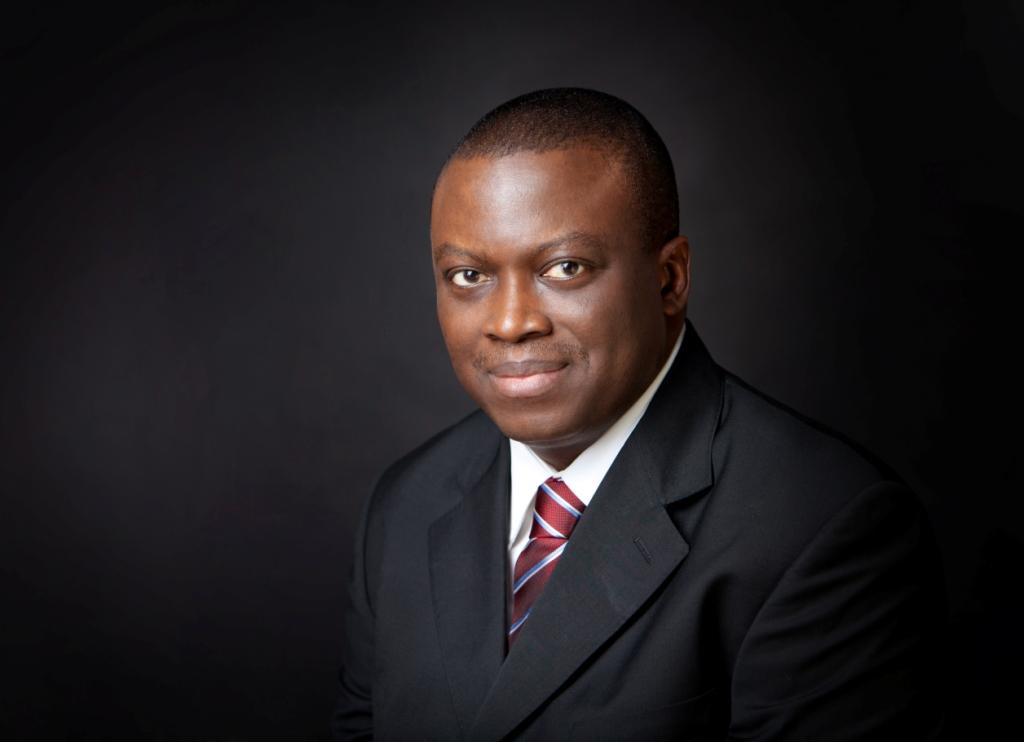Since the Buhari Administration was inaugurated 10 months ago there has been a wave of arrests of many alleged looters of the commonwealth. The thorough investigations conducted by the Economic and Financial Crimes Commission and the Presidential Panel on Arms Procurement have exposed mind boggling revelations of criminal diversion of public funds. However, not a single corruption case has been concluded by any of the courts.
President Buhari recently expressed his frustration and displeasure over the negative role of the courts in the prosecution of corruption cases. The situation is not likely to improve as the government has not demonstrated its capacity to confront corruption headlong in any sustained manner. As far as the forces of corruption are concerned, it is business as usual.
No doubt, scores of alleged looters have been exposed. In fact, some of the suspects have been charged to court. But having regard to the usual manipulation of the criminal justice system by influential criminal suspects there is no indication that a substantial number of the cases will be concluded before 2019. To avoid a situation whereby the trial of the alleged looters is suspended indefinitely the criminal justice system has to be reviewed as a matter of urgency. As the anti corruption battle cannot be won through the regular courts we are going to make a strong case for the immediate establishment of a Special Court for the trial of economic and financial crimes including corruption.
Public accountability and the Nigerian people
Advertisement
The media, the Bar and certain vested interests have accused the Buhari administration of subverting the rule of law and violating the fundamental rights of suspects in prosecuting the anti corruption agenda. In particular, the EFCC has been taken to task for daring to indict some corrupt lawyers and judges. The Body of Senior Advocates of Nigeria (BOSAN) has urged the government to fight corruption under the rule of law. On its own part, the NBA has censored the federal government for violating the fundamental rights of certain suspects involved in corruption cases. But neither the BOSAN nor the NBA has deemed it fit to call the members of the legal profession who are determined to frustrate the prosecution of corruption cases to order. As far as both bodies are concerned human rights are the exclusive preserve of the bourgeoisie. Hence, the tenets of rule of law are only invoked when the trial of VIPs is involved while human rights are only violated in Nigeria when the looters of the treasury are arrested and detained for a few days without trial.
Both bodies have never been bothered that about 40,000 out of 52,000 prison inmates are awaiting trial under dehumanising conditions in the prisons. To them human rights were not violated when 70 soldiers were recently tried in camera, convicted and sentenced to death for demanding for weapons to fight the well armed terrorists. But the lawyers have accused the administration of engaging in egregious human rights abuse for asking a handful of military officers to account for stealing hundreds of billions of Naira earmarked for the procurement of arms and armament for counter insurgency operations. When the Chief Judge of the federal capital territory, the Honourable Justice Ishaq Bello gave a directive that magistrates should not order the detention of criminal suspects the national body of lawyers did not speak up. Only Mr. Hon SAN and I join issues with his lordship over the illegality of the directive. In a country where petty criminal suspects are handcuffed and leg-chained from prison to court rooms the media cried foul the other day when a big man who is accused of stealing N400 million was handcuffed.
The Nigerian people should no longer allow the lawyers, the media and other defenders of the status quo to continue to defend the human rights of the alleged looters without speaking for the millions of victims of corruption. In particular, lawyers should be challenged for hiding under the rule of law to shield politically exposed persons from arrest and prosecution. No doubt, some overzealous anti graft, police and military officers have continued to violate the human rights of some innocent citizens. The duty of lawyers is to ensure that such law enforcement officers are fished out, isolated and sanctioned while the State should be made to pay reparation in appropriate cases. As far as I am concerned, the few cases of human rights abuse that have been recorded should not used to rubbish or discredit the anti corruption policy of the federal government.
Advertisement
Having regard to the role of some professionals like lawyers, accountants, bankers etc in the fight against corruption the relevant professional bodies are enjoined to deal with cases of misconduct involving their members. Since the Attorney-General of the Federation has once again been vested with the power to discipline erring lawyers he should set the engine in motion for bringing to book the members of the legal profession who are determined to frustrate the prosecution of corruption cases. At the same time the police and the anti graft agencies should not hesitate to arrest and prosecute lawyers and other professionals who engage in corruption and other criminal practices.
Frustration of corruption cases by politically exposed persons
According to the Financial Action Task Force (FATF), a politically exposed person is an individual who is or has been entrusted with a prominent public function. Due to their position and influence, it is recognised that many PEPs are in positions that potentially can be abused for the purpose of committing money laundering (ML) offences and related predicate offences, including corruption and bribery, as well as conducting activity related to terrorist financing (TF). The federal government has enacted the Money Laundering Act, Terrorism Prevention Act, Advanced Free Fraud Act etc to combat the offences of corruption and money laundering which are usually committed by politically exposed persons.
It is common knowledge that politically exposed persons are given special treatment in Nigeria. Upon arrest for stealing billions of naira, they are granted bail in self recognizance or other liberal terms notwithstanding the gravity of the offences alleged against them. Experience has shown that once granted bail in corruption cases, suspects adopt all manners of dilatory tactics to frustrate trial. It has just been disclosed by the Minister of Information, Mr. Lai Mohammed, that 55 ex-public officers standing trial for allegedly stealing N1.3 trillion have had their cases subjected to interminable delay. The trial of such politically exposed persons which commenced in 2007 has not been concluded till now. Apart from two of the ex-governors who opted for plea bargain the cases of others have been stalled through preliminary objections and stay of proceedings filed by the defendants and lavishly granted by either the trial or appellate courts.
Advertisement
In the same vein, bank executives who are alleged to have stolen about N500 billion have successfully stalled their trial. The Lagos High Court rightly insisted that it has the jurisdictional competence to try the case of the stealing of depositors’ funds and the manipulation of the capital market. But the Court of Appeal demurred and overruled the Lagos High Court. According to the Justices of the Court of Appeal since the main offence pertains to stealing in the capital market the defendants ought to have been charged at the Federal High Court. The federal government promptly filed an appeal against the decision of the Court of Appeal to the Supreme Court. As the appeal has not been expeditiously determined by the apex court the cases of the bank executives have also been suspended sine die.
The practice of manipulating the legal system to suspend the hearing of corruption cases involving politically exposed persons was condemned by the Supreme Court in Joshua Dariye v FRN (2015) 10 NWLR (1267) …. In that case, the appellant who was charged with the stealing of N1.2 billion ecological fund while he was governor of Plateau state filed a preliminary objection against the jurisdiction of the Federal Capital Territory High Court to try the case. Although the application was dismissed by both the trial court and the Court of Appeal the trial was suspended for 8 years. In dismissing the appeal the Supreme Court ( per Ngwuta JSC) condemned the delay tactics as “a sad commentary on our fight against corruption.” In his contribution to the judgment, Nweze JSC had this to say: “I have noticed a worrisome trend in most recent time, particularly among politically exposed citizens of this great country, imagining that they are above the laws of the land, have perfected some dubious tactics of delaying their trial when they run into conflict with the law.”
By stealing the fund set aside for job creation corrupt politically exposed persons are responsible for the majority of armed robbery and kidnapping committed by unemployed youths. By stealing the fund earmarked for building hospitals and roads the looters are responsible for many avoidable deaths and the spread of dangerous diseases. By cornering the fund provided for building schools the looters are responsible for promoting illiteracy and ignorance in the society. The public officers who diverted ecological fund of billions of Naira to buy choice properties in Dubai in the United Arab Emirates they are responsible for the flood that has caused tragic death of people and displacement of others as well as the destruction of the properties of the victims. In any country where the rule of law operates criminal suspects who are liable for such crimes against humanity cannot hide under human rights to avoid prosecution.
The need to review automatic bail for alleged looters
Advertisement
Since the victims of grand corruption including armed robbery and kidnap suspects are not usually admitted to bail those who are charged with looting the treasury should no longer be admitted granted bail. Once politically exposed persons standing trial apply for bail judges no longer place any premium on some of the well known factors militating against the grant of bail which include the nature and gravity of the offence alleged against a defendant; the character of the evidence; the probability of guilt; the likelihood of interference with the witnesses of the prosecution etc. Not too long ago, a few criminal elements who were duping Nigerians and foreigners alike through the crime of advanced free fraud, otherwise known as “419”, dragged the country’s image through the mud and caused untold embarrassment to law abiding citizens outside the country. Even though the alleged fraudsters who were charged to court were presumed innocent until proved guilty by the prosecution they were denied bail by the trial courts and the appellate courts. Politically exposed persons who were charged to court from 2003-2007 were equally denied bail by the courts. It was because the VIPs were denied bail that they resorted to plea bargain.
The rationale for the progressive judicial policy of refusing bail to suspects in corruption cases was explained by the Court of Appeal in the case of Ekwenugo v. Federal Republic of Nigeria (2001) 6 NWLR (PT 708) 171 where Fabiyi J.C.A. (as he then was) observed that “Nigerian judges do not operate in utopia. We operate in Nigeria. And no Nigerian judge can rightly claim he has not heard that Transparency International rates our nation-state as the most corrupt in the whole universe in the year 2000. This is ear-aching.”
Advertisement
The judicial policy of denying bail to politically exposed persons had contributed to the speedy hearing of corruption cases . However, the policy was jettisoned when the EFCC charged a number of ex-governors to court with the offences corruption and money laundering in 2007. Specifically, the policy was abandoned in the case of Chief James Ibori, a former governor of Delta state . Notwithstanding the unchallenged affidavit evidence of the prosecution that the 1st respondent had been convicted for stealing twice in the United Kingdom the federal high court admitted him to bail but ordered him to deposit his passport in court. But the Court of Appeal varied the bail conditions in Ibori v Federal Republic of Nigeria (2009) 3 N.W.L.R. (Pt 1127) 94 by directing that the passport be released to him to enable him to travel to attend to his medical needs and other personal matters pending the conclusion of the trial. In justifying the decision the Justices of the Court of Appeal waxed eloquent in defending the civil liberties of the suspect and thereby gave the impression that suspects charged with corruption were automatically entitled to bail and the release of their passports.
In line with the principle of stare decisis the decision of the Court of Appeal in the Ibori case has been religiously followed by all trial courts in Nigeria. In the process, politically exposed persons charged with serious corruption cases have taken advantage of bail and the release of their passports to delay or frustrate their trial. Some even jumped bail and have since fled the country. I am therefore compelled to urge our courts to reintroduce the judicial policy of denying bail to suspects in corruption cases . To ensure that such suspects are not unduly detained, corruption cases should be tried day by day as envisaged by the Administration of Criminal Justice Act, 2015. To avoid time wasting in the trial of corruption cases the practice directions of federal high court which require defendants to serve the prosecution their witness statements should henceforth be complied with.
Advertisement
Trial of military officers involved in arms deal by courts-martial
Contrary to media reports of the so called armsgate of $2.1 billion the Arms Procurement Panel set up by President Buhari has so confirmed the criminal diversion of $8 billion i.e $2.1 billion and N643 billion through a former National Security Adviser, Col. Sambo Dasuki (rtd) and $2 billion and N29 billion by a coterie of serving and retired military officers in the Nigerian Air Force. Investigations into similar looting in the Nigerian Army and Nigerian Navy have not been concluded. But in the ongoing trial of one of the retired military officers it has been alleged that he was pocketing the sum of N558 million per month from the salary account of the Nigerian Air Force!
Advertisement
Last month, the Federal Government referred the report of the Arms Procurement Panel to the EFCC for further investigation and the prosecution of the indicted suspects. The military authorities have assured the nation that the serving officers among the suspects would be handed over to the EFCC for trial. In a similar vein, while receiving the report of the panel which inquired into the role of some military personnel in the subversion of the electoral process in Ekiti and Osun states in 2014, the Chief of Army Staff promised that some of the suspects would be referred to the EFCC for prosecution. With respect, there is no legal justification for asking the EFCC to handle cases of military officers who have committed war related crimes and treasonable offences. Since the indicted military officers are subject to service law they should be referred to the military police for urgent investigation and prosecution before special or general courts-martial convened by the relevant military authorities in line with the provisions of the Armed Forces Act, Cap 20, Laws of the Federation of Nigeria.
It is my submission that the military officers who diverted billions of dollars and naira earmarked for procurement of arms and armament are liable to be charged with the serious offences of aiding the enemy, mutiny by impeding or sabotaging the counter insurgency operations and stealing in contravention of sections 45, 52 and 66 of the Armed Forces Act. Thus, by diverting the fund the indicted military officers aided the terrorists in the brutal killing of unarmed civilians and poorly equipped soldiers. Although retired military officers cannot be subjected to trial after 3 months of retirement the limitation does not apply to mutiny by virtue of section 169 (2) of the AFA. The proposed trial before military courts will meet the justice of the case and the expectations of the public. More so, that the Rules of Procedure applicable in courts-martial have no room for frivolous adjournments, motions for bail, interlocutory appeals, stay of proceedings and interim or perpetual injunctions.
Relevance of an anti corruption court
The Nigerian people are in support of the renewed fight against corruption and impunity in the country. Regrettably, the federal government is yet to appreciate that the anti corruption battle cannot be won through the regular courts. Apart from the class solidarity usually extended to politically exposed persons by judges in all capitalist societies the situation is compounded in Nigeria by judicial corruption and professional misconduct on the part of some senior lawyers involved in the defence of corruption cases. In spite of the overwhelming evidence of large scale looting being chuned out by the anti graft agencies the federal government is losing control of the war against corruption. Owing to lack of coordination in the trial of politically exposed persons corruption is fighting back. Painfully, the federal government is on the defensive as it has failed to counter the deliberate manipulation of the criminal justice system by the indicted looters of the public treasury.
The ICPC has over 400 corruption cases pending in the courts. Some of those cases were filed in the courts as far back as 2001! Thousands of other cases relating to economic and financial crimes are being prosecuted in the various courts and tribunals by the Economic and Financial Crimes Commission, National Drug Law Enforcement Agency, Code of Conduct Bureau, Nigeria Police Force etc. It is common knowledge that the recent reorganisation of the EFCC by President Buhari is already producing positive results. The other anti graft agencies ought to be reorganised and repositioned to implement the policy of the federal government on zero tolerance for corruption.
Right now, the regular courts are subjecting corruption and drug related cases to incessant adjournments instead of hearing them day by day as stipulated by the Administration of Criminal Justice Act, 2015. As if that is not enough, the suspects are being granted bail in very liberal terms. Some judges have specialised in granting interlocutory or perpetual injunctions to restrain the anti graft agencies and the police from arresting, investigating and prosecuting politically exposed persons. One of the anti corruption NGOs has dragged a judge to the National Judicial Council for granting seven of such orders to stop the the EFCC from prosecuting some politically exposed persons accused of corruption. The ban on granting of stay of proceedings in pending criminal cases is not being observed by the courts.
The few cases that have been charged to court under the Buhari administration are at the trial stage in the various High Courts. Without any regard for the provisions of the Administration of Criminal Justice Act 2015 and the 2013 Practice Directions issued by the Federal High Court, Court of Appeal and the Supreme Court designed to accelerate criminal trials trial courts have allowed accused persons and their lawyers to dictate the pace of trial. Thus, having regard to the congestion of cases in the High Courts there is no indication that majority of the corruption cases will be concluded before 2019. Even if some of the defendants are convicted the cases will be pursued to the appellate courts . If the current slow pace of prosecution continues some of the cases will be in the docket for the next 10 years. Therefore, the federal government should review the anti corruption policy with a view to setting up a Special Anti Corruption Court to try all economic and financial crimes including corruption.
Justification for the anti corruption court
Since the Administration of Criminal Justice Act is a federal enactment it is not applicable in the state courts. To that extent the trial of the majority of corruption cases which are pending in the state high courts is being conducted under antiquated criminal procedure laws. With the ongoing investigations into serious allegations of massive corruption in the office of the NSA, NNPC, CBN, NIMASA, NPA etc it is clear that the regular courts cannot cope with the trial of the many suspects that are likely to be indicted and recommended for prosecution. It is high time the Executive sponsored a bill for the establishment of an anti corruption court. Otherwise, a decade from now the corruption cases which were commenced 15 years ago will remain in the docket!
The proposed court will specifically handle cases of corruption, terrorism, drug trafficking, human trafficking, advance fee fraud and other economic crimes. In the white paper on the report of the Ahmed Lemu Presidential Committee on Electoral Violence in 2011 the Federal Government directed the Attorney-General of the Federation to ensure the establishment of an ad hoc electoral offences tribunal. Instead of setting up an ad hoc electoral offences tribunal the proposed anti corruption court should also be given the mandate to try electoral offences. The anti corruption court should be manned by carefully selected judges of proven integrity. The relevant provisions of the ICPC Act and EFCC Act which have shifted the burden of proof on suspects to explain their sources of wealth should be invoked in corruption cases. The provisions are in tune with the proviso to section 36(5) of the Constitution on presumption of innocence. Each corruption case should be heard and concluded by the trial court within 120 days. All appeals arising from the decisions of the anti corruption court should be heard and determined within 60 days by either the Court of Appeal or the Supreme Court.
The establishment of the anti corruption court does not require an amendment of the Constitution. The National Assembly which has undertaken to support the anti corruption policy of the federal government should not hesitate to pass the bill for the establishment of the anti corruption court. That was how the National Industrial Court was established in 1976 and was only recently recognised as a court of record by virtue of the 2011 Alteration of the Constitution. The Code of Conduct Tribunal and the Security and Exchange Tribunal should equally be reorganised to discharge their statutory duties of promoting ethical values in the public service and sanity in the capital market respectively.
Conclusion
At the end of the 4 years of the Buhari administration the success of the anti corruption policy will not be measured by the number of arrests or investigations carried out by the anti graft agencies. If the status quo remains unchanged the Nigerian people and the international community will blame the administration for its inability to secure the conviction of corrupt politically exposed persons with all the evidence at its disposal. Therefore, a special court ought to be established to deal specifically with economic and financial crimes as well as electoral offences . Otherwise, the anti corruption policy of the federal government will not achieve its desired objectives.
There is no doubt that official corruption has continued to arrest the development of the country. This is not unexpected given the nature of the country’s neo-colonial capitalist economy compounded by impunity on the part of the ruling class. If the Buhari Administration is going to confront the menace of corruption it has to ensure that the stolen wealth of the nation is recovered and invested in promoting the welfare of the Nigerian people. To guarantee the maximum cooperation and participation of the citizenry in the fight against corruption the Federal Government should grant autonomy to the anti graft agencies and ensure that there is no selectivity in the investigation and prosecution of corruption cases. In order not to play into the hands of corrupt elements the anti graft agencies should respect the rights of suspects in strict compliance with the provisions of the Administration of Criminal Justice Act, 2015.
Being the keynote address delivered by Femi Falana SAN at the round-table convened by the Department of Jurisprudence and International law, Faculty of Law, University of Lagos at the Nigerian Institute of Advanced Legal Studies, Akoka Lagos on March 27, 2016.
Views expressed by contributors are strictly personal and not of TheCable.
Add a comment


